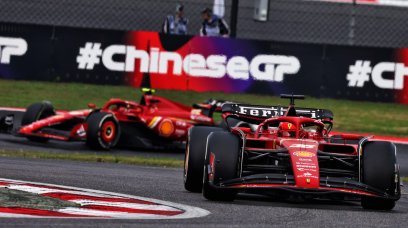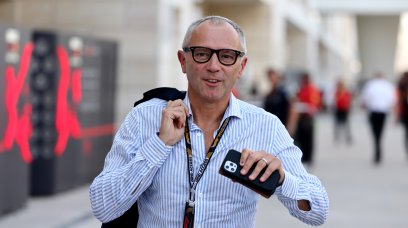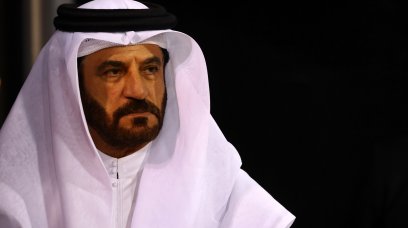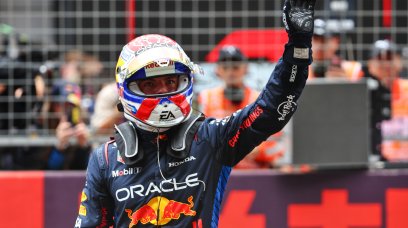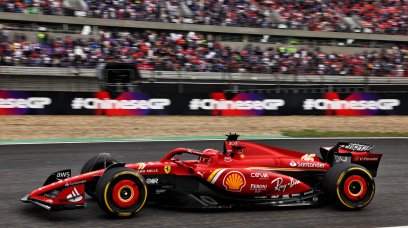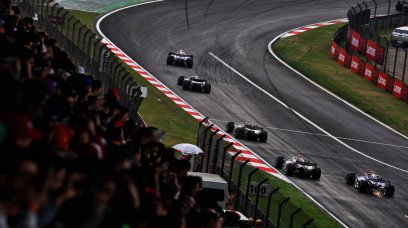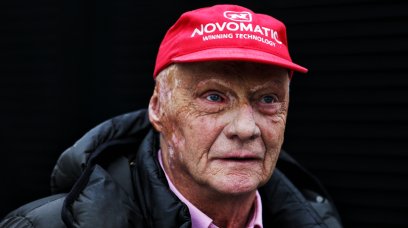Perched on the pit wall at every Grand Prix weekend, Ron Meadows is one of the longest-serving employees at Mercedes and, more aptly, 'team Brackley'. Having started out as a mechanic, run his own Formula 3000 team and spent a stint in the United States working in IndyCar, Meadows' Formula 1 journey began when he was approached by newcomers British American Racing at the turn of the millennium. He quickly found his feet to take on Team Manager duties and stayed onboard through Honda's takeover in 2006, after which he became Sporting Director. Some 16 years - and several other guises - later, he holds the same role with Mercedes, playing his part in seven Drivers' and eight Constructors' titles since 2014.
What does Meadows do and how has his role changed?
At present, Meadows is responsible for Mercedes' travelling crew and garage operations, while acting as a crucial link between the team and the FIA - including Race Control - across each Grand Prix weekend. But it is a role that develops year on year, and even race by race, with the latest factors for consideration being the COVID-19 pandemic and F1's cost cap, which places a strict limit on what teams can spend. "I would say the main part of my job has become a lot more administration rather than human-based," begins Meadows, 58, in an exclusive interview with RacingNews365.com . "I used to interview everybody, select all the team members, and now I have people who work for me who go through the process, and I make the final call on a few of the key people, but I try and let them be their own people and make their own mistakes. "Now, certainly with the FIA, there's an awful lot of administration to do, and it's got worse over the last 12 to 24 months due to the cost cap, timekeeping, all those sorts of things. "Covid has been a complete nightmare for all teams. We've basically got one person dedicated all the time, doing Covid testing, administration, paperwork, making sure that we're dotting the i's and crossing the t's, because the protocol seems to change week on week." He sums up: "I would say, mainly, [it's] a lot more computer-based rather than walking around the garage."
How Meadows also plays a part in forming F1's regulations
Alongside his Mercedes role, Meadows is "deeply involved" with the Sporting Regulations, offering his time and expertise to help shape them before they go to F1's governing body, the FIA, for approval. Meadows and several others "locked ourselves in a room" to create a draft of the latest rulebook, before opening it up to the entire grid, the FIA and Formula One Management as part of the Sporting Advisory Committee (SAC) meetings. Expanding on the rarely-spoken-about process, Meadows explains: "I think it's well-balanced, and the reason I say that is I think the FIA are struggling for manpower. "If you look how many articles there are, to dot the i's and cross the t's, and make sure the grammar is correct alone, never mind the regulations make sense – it's a full-time job. "Four or five of us locked ourselves in a room for a few days to come up with these rules, and then pass them on to the FIA. We bounced it around all the teams for two or three SAC meetings, and there wasn't a great deal of change. "The problem is when you have the full SAC, and you've got all the teams, and a lot of the FIA, a lot of the FOM get involved, you've got 40 people – so the meetings are big." As for whether he feels the current regulations are fit for purpose, Meadows hesitates slightly before responding: "I think sometimes they can be a bit complex and lack a bit of flexibility, but where do you draw the line? "It's a sensible bunch who sit together and go through it, and it's got to be good for the group, not just for the fast or the slow teams – it's got to be [good] for everybody."
What about the people making the decisions?
In addition to the regulations, those enforcing them have come under the spotlight in recent times, off the back of a fiercely contested 2021 season. Several structural changes have been made for 2022, following the FIA's review of last year's controversial title decider in Abu Dhabi, with Michael Masi replaced as Race Director by a new pairing – Niels Wittich and Eduardo Freitas. Herbie Blash has also been brought back to serve as a permanent Senior Advisor, while a Virtual Race Control is up and running to support the on-location Race Control room and Race Director. There is one more change that Meadows is keen to add to the list, but is aware of the challenges in doing so. "I would prefer permanent stewards, but I completely get why the FIA don't want that, as [they] can get too close to the teams and have their favourites, or perceived favourites," explains Meadows. "It's sometimes easier to know exactly what you're dealing with." In terms of the FIA's new approach - headlined by the two Race Directors - and how it will pan out, Meadows says: "We've seen in the past with the stewards, decisions go different ways on occasions, but that's just human beings for you. "We've all got different views on decisions, so I think we just need to wait and see how it goes. "I think if it's black and white, as most of the calls are, it should be okay."
Most read
